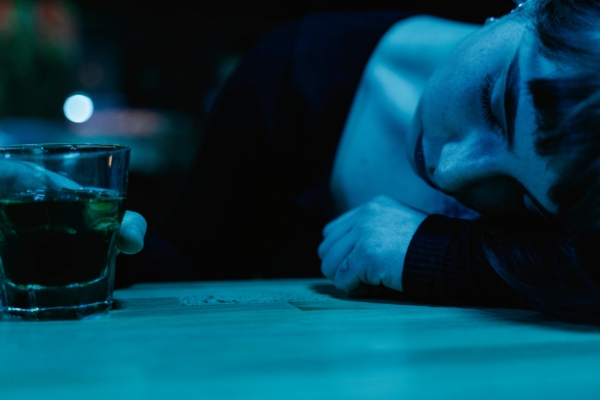Alcohol and Self-Care
What Does It Really Do for Your Mental Health?

This week (7th-13th July) is Alcohol Awareness Week, and across Northern Ireland people are taking time to think about how alcohol fits into their lives. While the theme this year is Alcohol and Work, we also know that for many young people, alcohol and mental health are closely linked, especially when you’re coping with stress, anxiety, or difficult life experiences.
Why do people drink?

Not everyone who drinks has a problem, and for some, it’s just part of social life. But alcohol can also become a way to cope with feelings that feel too big to handle on your own, such as:
- Low mood or depression
- Anxiety or panic
- Stress from work, school, or relationships
- Loneliness or boredom
- Past trauma or experiences of homelessness
At first, alcohol can feel like it takes the edge off. It can make you feel more relaxed, more confident, or more switched off. But over time, it often has the opposite effect.
The culture of drinking
In Northern Ireland, alcohol is everywhere. It’s part of celebrations, nights out, weekends with friends, and sometimes even coping with difficult days. There can be pressure to join in or to drink more than you planned, just to feel accepted.
It can feel hard to say no, or even to notice when drinking stops being social and starts being something you rely on to feel OK. No one should feel ashamed about needing help or wanting to take a step back.
What does alcohol actually do to mental health?
Even small amounts can have an impact on how you feel:
- It disrupts sleep. You might fall asleep faster after drinking, but the sleep is shallower and more likely to leave you tired, anxious, or low the next day.
- It affects mood. Alcohol is a depressant. If you already feel sad or worried, it can intensify those feelings once the effects wear off.
- It fuels anxiety. The “hangxiety” feeling is real—when your body processes alcohol, your nervous system becomes overstimulated, leading to racing thoughts or panic.
- It can make coping harder. When alcohol becomes a regular way to deal with emotions, it can feel even harder to manage stress without it.
Self-care that doesn’t rely on alcohol
- Listening to music that calms or distracts you
- Taking a short walk or getting fresh air
- Chatting with someone you trust (even a text can help)
- Having a hot shower and focusing on small comforts
It’s not about never drinking, it’s about knowing what you’re using alcohol for, and whether it’s really helping you feel better in the long run.
When to get help
Affecting your mental health or sleep
Leading to arguments or unsafe situations
Feeling like the only way you can cope
…it might be time to talk to someone. You’re not alone, and there is support without judgement.

At MACS, we can help you talk through your worries safely, make small changes at your own pace and connect with specialist services if you want more help.
You deserve to feel supported and valued, with or without alcohol. If you’re curious about how alcohol affects your mental health, or you’d like to talk about what’s going on for you, you can reach out to your MACS worker or contact us directly.
Useful Links and Support
If you’re worried about your own drinking or someone else’s, here are some places you can turn to for information and confidential help:
Drinkaware – Information and tools
NHS Alcohol https://www.nhs.uk/live-well/alcohol-support/
Alcohol Change UK – Help and Advice
NI Direct – Alcohol Misuse Support
Addiction NI – Specialist Services in Northern Ireland
You deserve support without judgement. If you ever need to talk, help is out there.